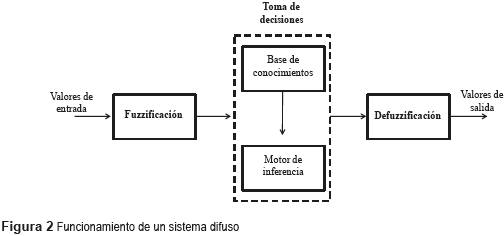
What is Fuzzy Logic System
Introduction to Fuzzy Logic
Fuzzy Logic is a logic or control system that operates based on an n-valued logic system. It utilizes degrees of truth in inputs to produce outputs that depend on the states of these inputs and their rate of change. This system differs from traditional binary logic, which relies on true or false values (1 or 0). Fuzzy Logic allows for more nuanced decision-making by considering the varying degrees of input states.
Basic Architecture of Fuzzy Logic System
Fuzzy Logic systems consist of input variables, fuzzy logic inference engine, fuzzy rules, membership functions, and output variables. The input variables provide the system with data, which is processed by the fuzzy logic inference engine using predefined rules and membership functions to generate output values. This architecture enables Fuzzy Logic systems to handle complex, uncertain, and imprecise information effectively.

Fuzzy Logic System Operation
Fuzzy Sets and Membership Functions
Fuzzy Logic systems operate using fuzzy sets and membership functions to handle uncertain data. These functions assign degrees of membership to elements, allowing for a more flexible representation of input values compared to traditional binary systems.
Representation of Linguistic Variables
In Fuzzy Logic, linguistic variables are used to express input and output values in a human-readable form. These variables provide a way to interpret and analyze data in a manner that is more intuitive and closer to natural language, making it easier for users to understand and interact with the system.
/cloudfront-eu-central-1.images.arcpublishing.com/prisa/5B7PWY3OTBAGRJ2M7BOTPNO224.jpg)
Examples of Fuzzy Logic
Glass of Water Temperature Example
In the glass of water temperature example, a fuzzy logic system can determine if the water is “hot,” “warm,” or “cold” based on temperature ranges. This application showcases how fuzzy logic can handle imprecise or vague data to make decisions.
Traffic Light Control System Example
Another example is a traffic light control system that adjusts signal timings based on real-time traffic conditions. By using fuzzy logic to analyze variables like traffic volume and congestion levels, the system can optimize traffic flow efficiently.

Advantages of Fuzzy Logic System
Handling Uncertainty and Imprecision
Fuzzy logic systems excel in managing uncertain and imprecise data, allowing for more flexibility in decision-making processes. By accepting degrees of truth rather than strict binary values, these systems can effectively handle situations where exact information is not available.
Simplicity in Implementation
Implementing fuzzy logic systems is relatively straightforward compared to traditional logic systems. The ability to work with linguistic variables and fuzzy sets simplifies the modeling of complex real-world scenarios. This simplicity makes fuzzy logic systems accessible for a wide range of applications across various industries.

Applications of Fuzzy Logic System
Automobile Systems
Fuzzy logic systems find applications in automobile systems for tasks like automatic braking systems, cruise control, and engine management. The flexibility of fuzzy logic allows for dynamic adjustments based on varying driving conditions, resulting in improved safety and performance on the road.
Washing Machines and Home Appliances
In washing machines and home appliances, fuzzy logic is used to optimize washing cycles based on factors like load size, fabric type, and dirt level. This adaptive control mechanism ensures efficient use of resources while delivering optimal cleaning results, making household chores more convenient and energy-efficient.